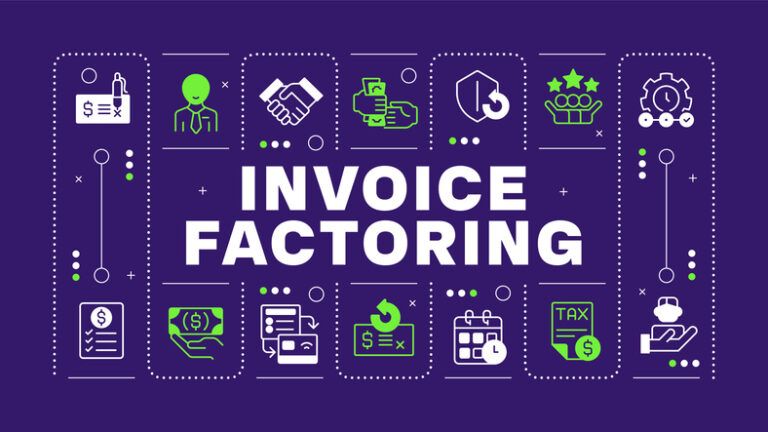Most businesses, especially cash-dependent ones like maintain an operational lift, encounter challenges with managing cash flows. The reason is tied to customers defaulting or delaying their payments. These link discounting and covering an invoice allows a firm to receive near instant finances through invoice factoring or invoice discounting. These two methods of securing funds work territory to help a business get almost instant funds based on invoices; however invoicing factoring vs invoicing discounting has notable distinct differences. The intention of this post is to analyze both and show you their differences in a bid to guide you on the best decision for your business.
What is Invoice Factoring?
A business sells its pending invoices to a factoring company for immediate cash in a process termed invoice factoring. The invoice factoring company usually gives a certain percentage of the invoice amount as an advance. After locking in a certain percentage of the invoice value (about 70-90%), the invoice factoring company allows customers to pay off the invoice in installments, and the remaining amount is paid later after the invoice is paid off. Moreover, the company does take the risk of collecting the payment from the customer.
This is particularly effective for companies that have no time or resources for dealing with collections but need funds urgently. In this, the factoring company provides a full-service option where they assume all the financial and collection risks.
What is Invoice Discounting?
Invoice discounting falls underneath the umbrella of invoice factoring. The main difference is that the business retains control over the collection process. In this case, a company’s borrowing base rests on unpaid invoices, but they are responsible for collecting payments from customers.
Under invoice discounting, a business will receive a percentage (generally between 80-90%) of the invoice value in advance. Businesses manage relations with their customers and collections are done in-house. After the customer pays the invoice, the business receives the remainder after the discounting fee is deducted.
Businesses seeking to raise cash quickly tend to prefer invoice discounting. From another perspective, businesses who prefer independence have more control over the payments while still utilizing an indirect relationship with customers.

Key Distinctions Invoice Factoring vs Invoice Discounting
- Control over Collection
Who collects has to be the most recognized distinguishing factor in invoice factoring versus discounting.
- Invoice factoring: The factoring company gives your customers the burden to chase after the payments and takes over the responsibility to pay you. This has benefits for most businesses who do not have the adequate resources or manpower to devote time to chase receivable invoices overdue.
- Invoice discounting: This is completely the opposite, the company remains in communication with the clients and takes charge of collection. Clients can control communication with the clients and collection of dues.
- Impact on Customer Relationships
When executing invoice factoring, factoring companies tend to deal with customers on your behalf. This can become a problem since it affects the relationship of the company and its clients. Some clients may find dealing with a third party uncomfortable, which reduces customer satisfaction. However, in most cases, the factoring company works with you and maintains the process private.
Keep in mind that invoice discounting allows for customer interaction which helps maintain client relationships. Since clients are not aware of the financing deal, they interact with your company regarding the payments, maintaining a more conventional relationship.
- Confidentiality
Because clients do not know you are borrowing against invoices, discounting invoices is mistakenly considered a less private type of financing. This indicates no outside party meddles with communication or operations of your business.
End clients are being charged by the factoring company and therefore invoice factoring provides more details than invoice discounting. Businesses would be uncomfortable with the use of factoring services as customers will know about it. Therefore, invoice factoring discloses more information than invoice discounting.
- Risk and Responsibility
When analyzing the two methods of invoice factoring and invoice discounting, both have unique advantages and disadvantages. Nonetheless, one critical difference rests on the responsibility and risk associated with each method.
- Invoice Factoring: In case of factoring, the factoring company takes full control of the collections. In return, they also bear the risk of non-payment from the customers. This is largely the case in non-recourse factoring. In this type of factoring, the company that buys the invoice also takes over the risk of unpaid invoices.
- Invoice Discounting: This risk retention by the discounting entity is the foremost invoicing characteristic of invoice discounting. In a situation where a customer defaults on payment, his business still holds the obligation of paying back the amount already advanced by the discounting entity. This illustrates how businesses push the risk of invoice discounting rather than the other way around with invoice factoring.
- Flexibility
Because of the control that discounting gives to business entities over the collection processes and their relationships with customers, invoice discounting is popular among those in search of flexibility. Mature businesses with strong credit reputations that can control collections and manage their clients are ideal candidates for invoice discounting.
Even though invoice factoring relinquishes some control over the collection processes, it does offer a unique integrated service for businesses that want to prevent collection issues and relieve cash flow management.
Advantages of Invoice Factoring and Invoice Discounting.
Advantages of Invoice Factoring
- Immediate Cash Flow: There is immediate access to cash to cover operational expenses, restock, or grow the business because there is no waiting for customers to pay with invoice factoring.
- No Debt Incurred: Because invoice factoring is not a loan, your business does not incur additional debt. You do not have to worry about taking on more debt; instead, you are simply selling your invoices for cash.
- Outsourced Collections: Save time by outsourcing collection to the factoring company, allowing you to focus on more pressing matters.
- Flexible Financing: With increased invoices comes increased cash flow, thus making it a more flexible and scalable solution.
Advantages of Invoice Discounting
- Maintain Customer Relationships: Because of the ability to control collection and client relationship, invoice discounting helps you retain customer confidence and trust.
- Confidentiality: It is a more discreet financing solution because customers remain unaware that you are borrowing against invoices.
- Quick Access to Cash: Cash is availed quickly based on outstanding invoices. Similar to invoice factoring, cash is also available quickly with invoice discounting.
- Decrease Expenses: Companies that maintain a proficient collections department are able to take advantage of invoice discounting due to lower costs for collection dependent transactions.
- Pick What Is Ideal For Your Business.
While there are several differences, perhaps the greatest are the company’s prevailing customer relations, level of advancement within the business lifecycle, and the amount of control they are ready to give up when picking between invoice factoring and invoice discounting.
Invoice Factoring is the most appropriate option for new or smaller businesses that do not have adequate resources for a collections department. It also serves well for those who need immediate access to cash and prefer an external manager for their receivables.
Invoice Discounting is more suitable for firms with an established credit history who can manage their collections independently. It is also beneficial where customer relationships are significant and financing is meant to be kept confidential through undisclosed invoices because invoice discounting allows more control.
Conclusion
The two invoice discounting and invoice factoring services differ in how they manage the customer, risk and control even though both aim to increase cashflow. Simply Factoring Brokers has what it takes to understand the needs of your business. Ostensive tailoring and svelte concealment into constraining cashflow choices is our specialty, and through our assistance, we tend to every need that arises in the most effective, streamlined manner tailored for your business.

